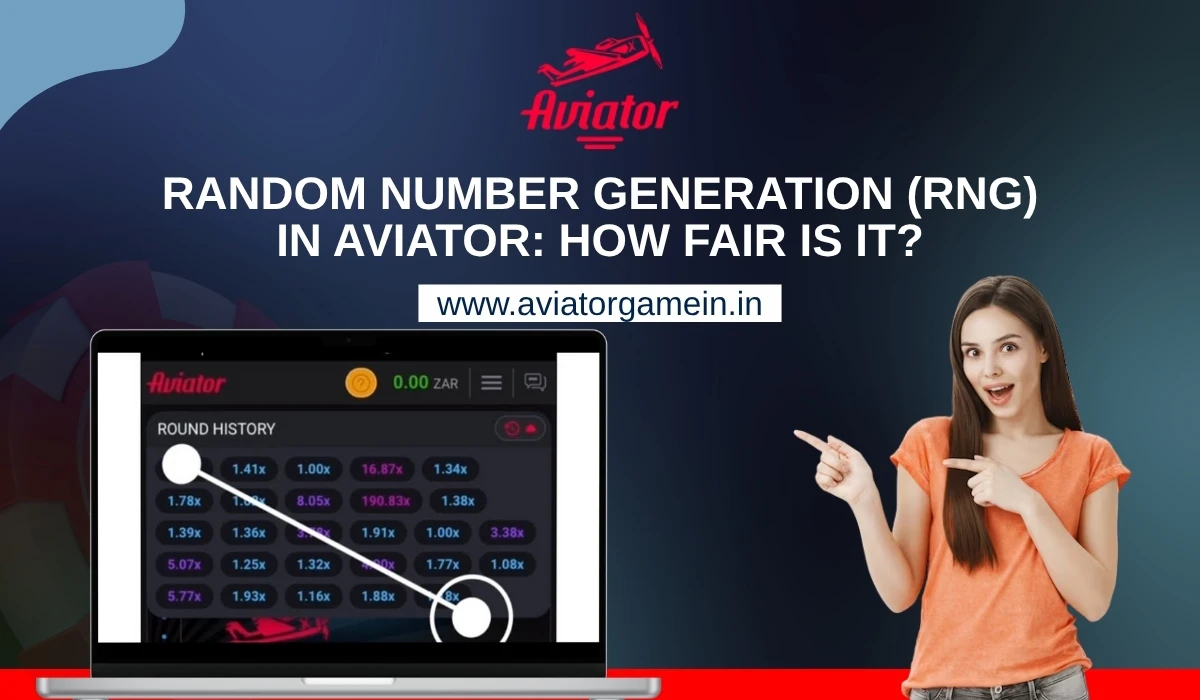Online games like Aviator are gaining huge popularity for their fast gameplay and potential for real cash wins. But as more players take interest, an important question often arises: Is the game fair? Can the results be trusted?
At the heart of Aviator lies something called Random Number Generation (RNG). This blog will explain what RNG is, how it works in Aviator, and most importantly—whether it truly ensures fair play. If you’ve ever wondered whether the Aviator plane is actually “random” or controlled by the platform, this guide is for you.
✈️ What Is Aviator and Why It’s Popular
Aviator is a crash-style online game where a plane takes off and flies higher and higher, increasing a multiplier as it goes. You can cash out at any time, but if the plane flies away before you cash out—you lose the bet. It’s quick, thrilling, and keeps you on your toes.
With every round lasting just a few seconds and the chance to win 1.01x to even 100x your bet, it’s no surprise that Aviator has become a favorite on platforms like Mostbet, 1Win, Stake and more.
But how does the game decide where the plane crashes? That’s where RNG steps in.
🔄 What Is RNG (Random Number Generation)?
RNG stands for Random Number Generator. It’s a special software algorithm that produces a sequence of numbers that no one can predict. These numbers are what determine the game’s outcome—like where the Aviator plane crashes.
In simple words, it’s like rolling a dice, but with technology.
There are two main types of RNG used in online games:
- True RNG: Based on natural events (like noise or temperature). Mostly used in physical devices.
- Pseudo RNG (PRNG): Based on a computer algorithm and a seed number. Most online games, including Aviator, use this type.
Even though PRNG is not “truly random” in the mathematical sense, it’s extremely close to being random and completely fair when properly used.
🎯 How RNG Works in Aviator
Let’s break down how the Aviator game uses RNG to decide each round:
- Each round starts with RNG selecting a crash multiplier.
- This number can be as low as 1.01x or go up to over 100x.
- Players place their bets before the round starts.
- The multiplier increases as the plane “flies” until it hits the number chosen by the RNG.
- If you haven’t cashed out by that point, your bet crashes with the plane.
The beauty of this system is that the outcome is already decided the moment the round begins, but it’s not shown to you until it happens. This keeps the suspense high and prevents players from manipulating results.
🛡️ Is RNG in Aviator Fair?
This is the biggest question most players have.
The answer: Yes—if the platform is licensed and uses certified RNG software.
Most trusted betting platforms that host Aviator work with licensed software providers. These providers undergo audits by third-party organizations (like iTech Labs or Gaming Labs) to ensure their RNG systems are:
- Unbiased
- Unpredictable
- Consistent over time
In games like Aviator, RNG is tested for fair distribution of results, meaning low crash multipliers and high ones appear in a balanced way over time.
So no, the game doesn’t “cheat” by always crashing early. And platforms like Lotus365, Mahadev Book, and Reddy Book use versions of Aviator that are backed by reliable game developers.
👁️ Can the Outcome Be Predicted?
No, it can’t.
That’s the whole point of RNG.
Every time the Aviator plane takes off, it does so based on a number generated in the background—a number that no player, app, or employee can predict or control.
You may notice some patterns over short periods—like three low-crash rounds in a row or two high-crash rounds together—but that’s just random chance. It’s natural for the mind to look for patterns, but in RNG-based games, those patterns don’t follow any logic you can use to win consistently.
✅ How to Know If You’re Playing a Fair Version of Aviator
Here are a few tips to ensure you’re playing on a trusted platform:
1. Look for Licensed Platforms
Stick to apps like Ultrawin, Lotus365, Mahadev Book, or Reddy Book Live—platforms that are known for hosting verified versions of Aviator.
2. Check for Game Providers
If the game is powered by a well-known provider like Spribe, it’s likely using audited and certified RNG.
3. Read Player Reviews
What do other users say about the game? If a site is known for rigging or manipulating outcomes, it usually becomes public knowledge quickly.
4. Observe Game Behavior
While you can’t predict outcomes, you can look for obvious red flags. If the plane always crashes early, never gives high multipliers, or behaves unnaturally, it might be time to switch platforms.
🔄 RNG and Fairness in Long-Term Play
RNG is not about fairness in each individual round—but rather fairness over many rounds.
That means:
- You won’t win every round.
- Sometimes the plane will crash at 1.01x for several rounds.
- Other times, you’ll hit massive wins at ×50 or more.
But over time, RNG ensures that the results are evenly spread and not tilted in favor of the platform. This makes the game fair as long as you manage your bets smartly.
💡 Tips for Playing Aviator Smartly (Even with RNG)
While you can’t beat RNG, you can still play wisely:
- Use auto cashout features to lock in safe wins.
- Set loss limits so you don’t chase losses after a bad streak.
- Watch a few rounds before betting to get a feel of the game flow.
- Play small bets across more rounds to reduce risk.
- Take breaks—remember, every round is independent.
Playing with a strategy won’t change the RNG, but it will help you make better decisions and manage your wallet.
🔍Trust the Game, Play with Caution
RNG is the invisible engine that powers games like Aviator—and it’s your best friend when used honestly. It ensures that neither the player nor the platform has control over the outcome, making the game fair, unpredictable, and exciting.
If you’re playing Aviator on a well-known, trusted platform, you can feel confident that the results are not rigged. But remember—even with fair RNG, the game still relies on luck. So play responsibly, enjoy the ride, and never bet more than you can afford to lose.




